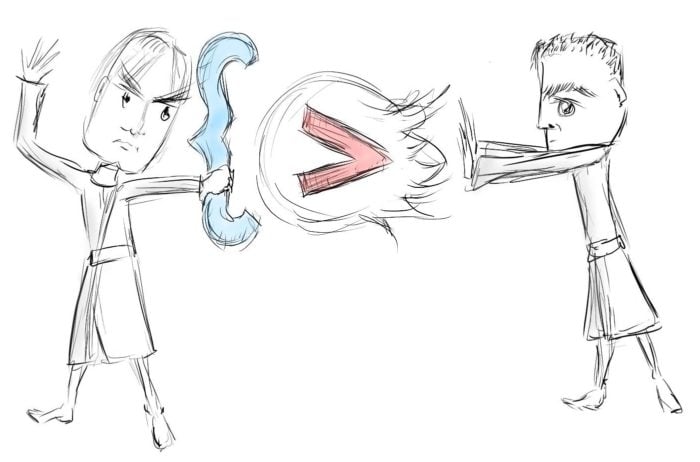DaedTech Digest: The Closest I Get to Business Travel These Days
I didn’t do a digest post last week. And I can’t offer any kind of logistical or overworked excuse.
Amanda and I just decided we wanted to go out for a date night, so we tried a local brewery, played some old school video games, and had dinner out. By the time we came home, it was almost midnight, and I went to bed instead of writing a digest post. C’est la vie.
Farewell, Charleston, and Thanks for All the Fish!
That being said, there have been logistics this past week. Oh, yes, there have been logistics.
We packed up last Friday, loaded the car Saturday morning, and then headed out. Well, first we went to the beach for a while, and then we headed out.
Our next stop? Here in Atlanta, where I’m typing this week’s digest.
But we’re not in Atlanta for a month. We said goodbye to Charleston, and our next slow travel destination is actually a place called Ramrod Key, near Key West.
We Do Short Stops Sometimes, and It’s Always Weird
No, Atlanta is just a stop over because I wanted to see the Cubs play while they’re here in Atlanta. So we figured we’d stay for a week, instead of doing a protracted, mid-week relocation with a baseball game or two in the mix.
What’s it like when we do something like this? A week or less during slow travel life?
Well, frankly, it’s weird. It’s kind of like a business trip.
We arrived last Saturday night, unpacked, and took it easy. On Sunday, we did the tourist thing, meandering around downtown Atlanta and sightseeing. But, since then, I’ve spent all of my time in our AirBNB and running miscellaneous errands nearby, without really doing anything interesting. (We are heading to the Cubs game shortly, though, and we will go a-touristing again this weekend before departing for the Keys).
And that very much reminds me of business travel over the years. You go somewhere and snatch sightseeing while you can. But mostly, you work, and hope you won’t be too tired for the odd trip to the local zoo or nightlife area.
So that’s condensed slow travel. When you go somewhere and live for 1-4 months, you experience the place while working, living like a local. But when you cram it down to 8 days, you experience it like a visiting regional manager.
And, on that note, please enjoy this view of Charleston from Ft. Sumter. Seeing Charleston at a distance seems uniquely appropriate for a “Goodbye Charleston” post.
Picks
- One of the things that a dinosaur (and content marketer) like me finds most annoying about Instagram is the lack of support for uploading from desktop. Luckily, Gramblr exists as a free tool to help you trick Instagram. Erik 1, Instagram 0.
- Fellow Freelancers Show panelist Jonathan Stark is offering a 10 day challenge to get you in the habit of systemizing things in your life. If that sounds interesting at all, I’d definitely sign up, becuase I employ this same technique, and it’s immensely helpful for making my own businesses more efficient.
- If you’re a craft beer fan and find yourself in Atlanta, definitely give this place a try: the Torched Hop. Not only do they have a ton of really delicious beer, but the food looks good (we just stopped for a quick flight and didn’t actually try it) and the ambiance is wonderful.
The Digest
- I answered another entry level question on the make me a programmer blog: are software engineers happy? My take is that yes, they are. Perhaps even unjustifiably so at times.
- Here’s a fun one. On the Freelancers Show, we interviewed Steve Pomerantz, who specializes in getting non-paying/deadbeat clients to pay you.
- And, finally, we have a new Hit Subscribe Youtube video up where we talk about the different forms of content marketing.
As always, have yourselves a great weekend, folks.






